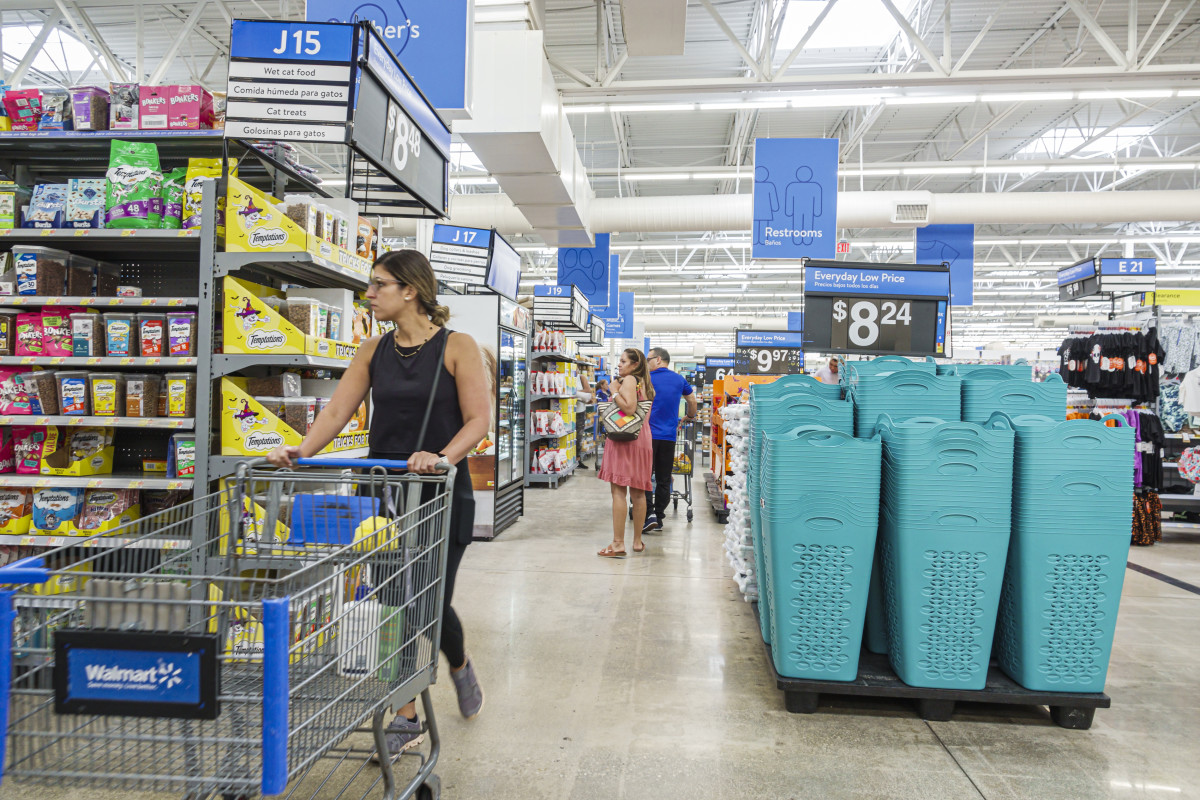
Competition between the big three companies in consumer retail has been red hot in 2024, and it's not even the end of March yet.
Those three companies are Walmart (WMT) , Target (TGT) , and Amazon (AMZN) , and each has been working to outdo one another as consumer demand remains high and customers are increasingly price-sensitive in an inflationary market.
Related: Walmart launches 2 popular new brands customers will love
Earlier this month, for example, Target launched its own paid membership program to compete with Amazon Prime and Walmart+. Though it's late to the game, fiercely loyal customers have been waiting eagerly for the launch, and Target will no doubt see a bump from its forthcoming Target Circle 360 membership tier, which launches in April.
In late March, Walmart then launched two new oral health brands, Plus Ultra and Zimba, to bring new customers interested in wellness and sustainability through its doors.
And Amazon is currently hosting its Big Spring Sale, a massive promotional event open to both Prime members and non-members, which runs from March 20-25.
The three retailers are clearly vying for customer dollars and attention, but with the Consumer Price Index (CPI) up 3.1% overall on a 12-month basis, customers are increasingly hawkish about their wallets and resistant to spending more unless they absolutely have to.

Walmart U.S. CEO on consumer behavior
That is, unless they're shopping at a Walmart.
Walmart U.S. CEO John Furner told the National Retail Federation (NRF) State of Retail & the Consumer panel in late March that, in addition to seeking out savings, customers are also opting to spend more time with loved ones and less time racing around from store to store in search of savings.
“An underlying trend that I think is here to stay is convenience,” Furner, who is also a board member at the NRF, said.
“People are willing to trade off in some cases, on prices, for things that are more convenient. The parts of the service sector or the retail sector that find more innovative ways to serve people, in a way that saves them time, takes friction out of their lives, lowers some of the decision-making they have to go through — I think those are the companies and the parts of the economy that will continue to win.”
Walmart recently announced it was working to reduce its prices across grocery and restore some key items back to pre-inflationary prices.
“The nagging problem is stubborn food inflation that has been high over the last few years,” he added.
But Furner had an optimistic prediction for the year ahead as it compares to 2023, based on interactions he's had with Walmart devotes.
“Most customers are saying they think 2024 will be better than 2023, and that’s a good sign,” he said.
Furner added that he foresees the long-lasting tremors from Covid and the havoc it wrought on both consumers and retailers as a fading memory.
“It appears that most of [the impacts of Covid] are behind us," he said. "It appears that supply chains are much better. We are able to serve customers more flexibly. As customers demand more flexible options, we serve them how they want to be served. There are a lot of objective reasons to believe we are in a great spot.”







